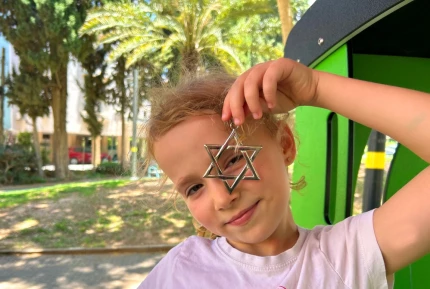Repatriation with Kids
Repatriation to Israel with children can be one of the most meaningful decisions a Jewish family undertakes. It is not simply migration — it is a return to heritage, identity, and belonging. But when children are involved, legal, emotional, and logistical layers multiply. Parents must navigate how Israeli law defines dependents, how the Law of Return treats mixed families, and how to assemble the correct documentation so each child enjoys full citizenship rights. This article walks through every key aspect of repatriation with kids: legal definitions, eligibility, required paperwork, family scenarios, age cutoffs, and best practical advice. It is designed for parents preparing to make aliyah and want clarity on how children fit into the process.
an Israeli citizenship specialist
What Repatriation with Children Means
Bringing children along in aliyah is more than a symbolic gesture, it is a legal necessity to maintain family unity and guarantee children equal status under Israeli law. While many adults apply under the Law of Return on their own, when kids are included, extra rules apply to ensure that the relationship is established, documented, and consistent with immigration norms.
Legal Definition under the Law of Return
The Law of Return (1950; amendment 1970) grants every Jew the right to immigrate to Israel and gain citizenship, and extends that right to “the children and grandchildren of Jews, and their spouses.” This broad definition acknowledges that children of Jewish parents or children adopted by a Jew may also be eligible. (Source: Knesset Law of Return text)
Who Is Considered a Child or Dependent
In repatriation terms, a “child” is typically a minor under 18 years of age.
Dependents may include biological, adopted, stepchildren, or children under legal guardianship, provided legal relationships are documented. Children must generally be residing with the applying parent(s) and be financially or legally tied to them. Israel imposes safeguards against cases where children are taken abroad without proper consent or legal basis.
Eligibility for Repatriation with Kids
Eligibility for repatriation with children is determined by both the parent’s Jewish status and the family’s legal structure. Under the Law of Return, every Jew, child of a Jew, or grandchild of a Jew has the right to make Aliyah and obtain Israeli citizenship. When children are involved, however, the process requires additional legal and documentary verification to ensure that their rights are protected and that both parents (where applicable) consent to relocation.
Who Can Apply as a Parent
A parent eligible for aliyah under the Law of Return can include dependent children as part of their application. Eligibility typically requires one of the following:
Applications are usually processed jointly for parent(s) and children to maintain family unity.
What Happens If Only One Parent Is Jewish
If only one parent qualifies under the Law of Return, the other parent and children may often be included, provided the family remains intact. The non-eligible parent may receive a durable entry status or later naturalization, but children can often become citizens alongside the Jewish parent.
Key Points for Mixed Background Families
Families of mixed background — e.g. one Jewish parent, one non-Jewish — must prepare stronger documentation: proof of stable family life, shared household, religious or cultural ties, and joint custody agreements if relevant. Israel’s authorities scrutinize mixed cases more closely.
Documents Required for Children
Israeli authorities pay particular attention to whether the documents clearly establish the child’s relationship to the Jewish applicant, confirm parental consent, and comply with international standards for legalization (such as apostilles or notarized translations). Even a small discrepancy — like a misspelled name, missing signature, or outdated translation — can delay approval for months.
- Birth Certificates and Proof of Parenthood. Children must present certified birth certificates listing both parents. If abroad, these must be apostilled and translated. For adopted children, the adoption decree with legal recognition is required.
- Custody or Guardianship Documents. If parents are divorced or separated, the custody ruling (family court decision) must be submitted to confirm the right to repatriate with the child. Guardians or other legal guardians must present formal documents proving their authority.
- Consent from the Other Parent. Written, notarized consent from the non-repatriating parent is nearly always required unless a court has suspended that parent’s rights. This prevents international child abduction issues.
- Adoption or Surrogacy Paperwork. For children born via adoption or surrogacy, relevant legal orders must be submitted, showing the intended parent(s) is recognized by the child’s birth country as legal guardians.
The list of documents provided above is for general guidance only and may vary depending on your individual case. For personalized advice and an accurate checklist tailored to your family’s situation, please contact the experts at WRAI, who specialize in handling family and child repatriation cases.
Repatriation Scenarios for Different Family Types
Different family constellations require tailored approaches. Here’s how repatriation generally works in various situations:
| Family Type | Typical Approach | Key Considerations |
|---|---|---|
| Both eligible parents | Include all children together in one application | Simplest path; children gain citizenship with parents |
| Only one qualifying parent | Include spouse and children | Non-eligible spouse may receive special status; children usually gain citizenship |
| Divorced / separated parents | Custody and consent documents are critical | Ensure both parents’ consent or court approval |
| Single parent who qualifies | Sole custody and proof thereof | Application typically proceeds smoothly under parent’s eligibility |
| Mixed families / stepchildren | Legal guardianship and step relationships must be documented | Clear proof of relationship and family unity required |
| Unmarried / civil partners | Demonstrate long-term stable relationship and shared life | Legal recognition in home country is helpful |
| Adopted or foster children | Adoption orders recognized internationally | Foster children may require adoption for eligibility |
These scenarios guide how to structure the application and choose which legal documents to include.
If Your Child Is Turning 18 Soon
Age is a critical factor in eligibility, so careful timing matters. If you are still hesitating or postponing the repatriation process, the following section is written especially for you.
How Eligibility Is Calculated by Age
If a child is under 18 at the time of application submission, they are usually considered a dependent. Even if the process concludes after their 18th birthday, they remain eligible under the family application. Once a child reaches 18 before filing, they must apply as an adult, which is subject to different criteria.
Timing of Applications
Families considering this path should consider working with experienced repatriation advisors such as WRAI, who specialize in guiding families through the legal, logistical, and emotional aspects of aliyah with children. With the right support, what might seem daunting becomes a meaningful journey toward a shared future in Israel – one that strengthens family ties and secures a place for the next generation in the Jewish homeland.
On average, 3–6 months if everything is well-prepared, and 6–12 months in more complex cases (divorce, custody, missing documents, or translation delays).
The main factors are:
- Document readiness: apostilles, certified translations, and consistency of names and dates across all records. Even small errors cause extra checks.
- Family situation: divorced parents, shared custody, or lack of consent from one parent add time.
- Child’s age: if a child is nearing 18, apply early — ideally 6–12 months before the birthday.
- Consulate workload: summer and fall are peak seasons.
- Special cases: adoption, surrogacy, or dual citizenship often go through additional verification.
The most efficient way is to prepare the whole family file as one complete, verified package. When documents are pre-checked and legalized before submission, the timeline shortens dramatically.
You can — but it’s not ideal if your goal is a smooth, unified process.
When a family applies together, all relationships are verified once, under one file. If children are added later, new applications and proofs are required, and timing becomes critical if a child is close to 18.
Still, in some cases it makes sense — for example, when a parent must relocate earlier for work or to prepare housing. In that case, it’s important to prepare the children’s documents and consent forms in advance, so their case can be opened without starting from zero.
This is one of the most sensitive issues in family repatriation. Israel and most Western countries treat a child’s relocation abroad as a joint parental decision. Without consent from the other legal guardian, you risk a refusal or even legal complications.
The practical options are:
- Notarized written consent – the best scenario.
- Court decision granting custody or right of relocation – accepted if properly legalized and translated.
- Court order limiting or removing parental rights – in cases of abandonment or other legal grounds.
Before going to court, it’s often worth trying a mediated agreement covering visitation, online contact, or travel costs. It reduces conflict and keeps the process humane and efficient.
Never attempt to move the child without formal consent or a legal ruling — that can lead to serious consequences, including international legal action.
Not always. It depends entirely on the parents’ status at the time of birth:
- If one parent is an Israeli citizen, the child automatically becomes Israeli by descent.
- If parents are new immigrants (olim) whose citizenship is being processed, the newborn is added to their status — but still requires registration and paperwork.
- If both parents are temporary residents or tourists, birth in Israel does not automatically grant citizenship. The process must go through the parent’s legal status.
In practice, it’s best to have the family’s legal documents ready before birth, so registration in Israel is smooth and consistent with your repatriation case.
Israel provides solid support for families making Aliyah with kids. Children can attend free public schools with special Hebrew integration programs, and families receive health coverage from day one. Financial aid and child allowances are available depending on family size, and many municipalities offer help with housing and community integration.
The key is to act quickly in the first month — register for health insurance, enroll the kids in school, and finalize your paperwork to access all benefits smoothly.
an Israeli citizenship specialist

